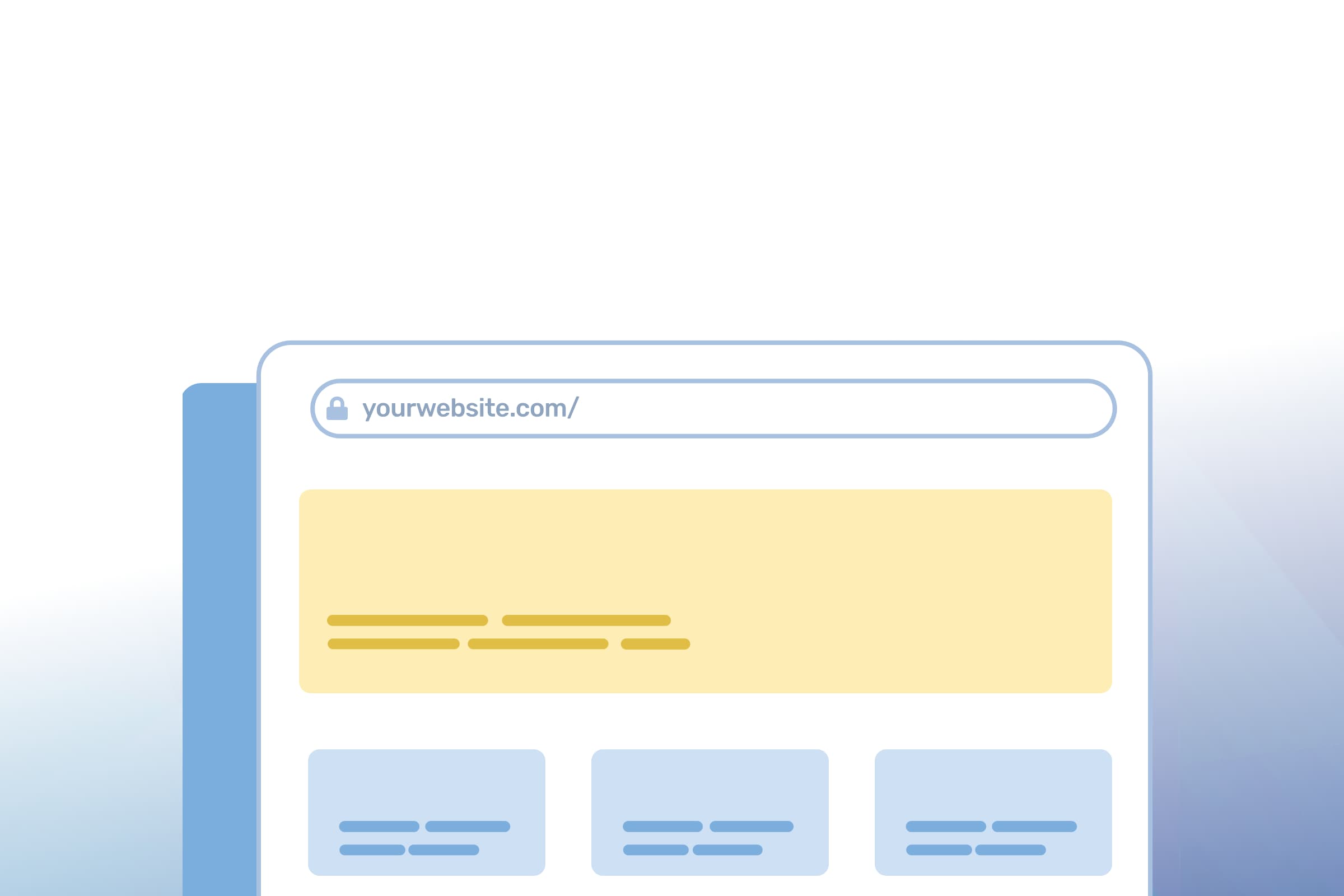As a local business, your website is a critical marketing tool. Whether referred by word of mouth or found through a Google search, almost every new customer is going to visit your website at some point in the buying cycle. Confident customers might just visit your website to grab your phone number, while others might scour every page of the website, weighing a list of pros and cons between you and a competitor.
Among the factors that discerning customers will consider are what we call trust signals or trust symbols. These are indicators that your business is legitimate, you “are who you say you are,” and you have a strong track record of above-board operations.
Having reassuring trust symbols is not as simple as writing “we are legit, trust us,” on your homepage. Customers want to know you are real, you have true expertise, and you will be accountable if something in the transaction doesn’t go according to plan.Here are some of the key ways you can incorporate strong trust signals on your website.
Photography

If at all possible, arrange for a professional photo shoot of you and your staff. Not only will this help put a face to a name, the human factor is the strongest trust symbol there is. In addition to photography of your team and your workplace, also consider custom photography for a gallery or before & after pics. Whether you own a landscaping company or a cupcake shop, real photography is a must to demonstrate the quality of your work.
About us page

Write an about us page that comes from the heart. Why did you get into this business? Why are you passionate about it to this day? The more unique details you can add about yourself or your company, the better. If possible, add staff bio & photos as well.
Contact us page
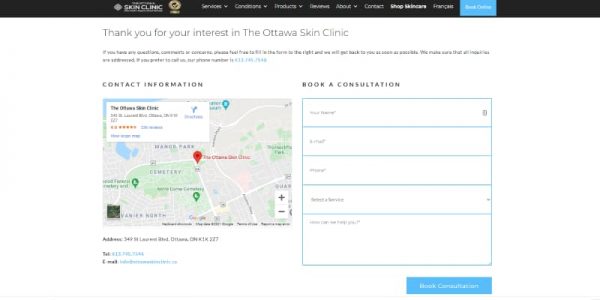
This might be the single most important page on your website, as it’s how potential customers will get in touch with you. At a minimum, you should have a contact form and a phone number. For additional trust symbols on this page, you might want to add an embedded map (if you have a storefront or office), opening hours, and any other key details.
Pricing
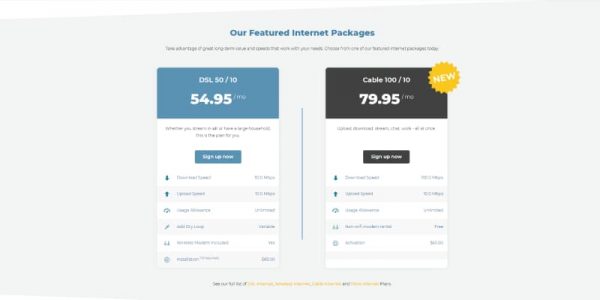
If applicable, this is the next most important consideration, if for no other reason than self-qualification. While this may not be possible in your industry, consider even something like “starting from…” to give customers a ballpark range and understand if they’re a good fit.
If you are going to include pricing, ensure that it’s up to date as inaccurate pricing can be worse than not having it at all.
Social media links
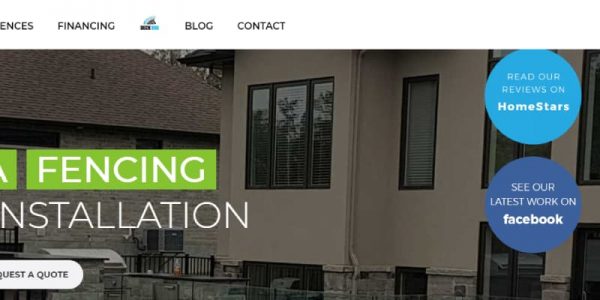
On social media, you can be a little more casual and extemporaneous compared with your website. Link to all active social media accounts. Even better if you can link to industry-specific social media or listing sites, such as Yelp for restaurants or HomeStars for home services. However if you have a Facebook page that hasn’t been updated since 2015, it might be better leaving that off unless you plan to resume regular content. Also ensure that any key company details (such as hours, pricing etc.) are consistent across all platforms to avoid confusion or frustration.
Testimonials or reviews

Related to trust signals is the concept of social proof. This is the concept of being willing to buy a product or service because others have as well. Include testimonials from satisfied customers – again, the more detail/specific, the better. A five-star review that says “great service” has value, but a review along the lines of “Bob and his crew were so helpful with my bathroom renovation, they came in under budget and finished right on schedule” is such valuable content.
Though there’s a reasonable temptation to only curate glowing reviews, from a trust signal perspective don’t be shy about linking to a third-party review source like Google My Business (GMB). While you might have some lower-rated reviews or even upset clients, giving customers the full picture will help them make an informed decision and trust that there are no skeletons in the closet.
Certifications, memberships, and awards
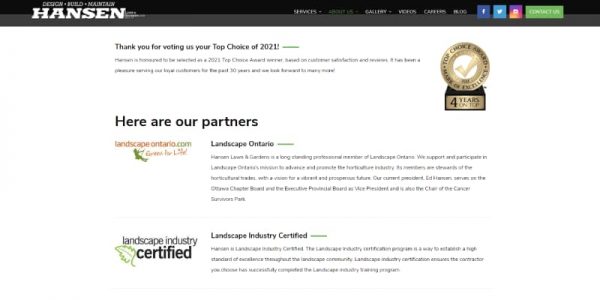
Show off your qualifications, especially if they are ones that fly-by-night competitors would not have. Whether it’s listing your professional designations on your bio/about me page, or including logos of certifications and memberships on your homepage, these can go a long way in the trust category. Also in this category would be any “as seen in” features, such as a story in the local paper or a segment on national television.
Any unique value propositions

Say you have an initiative where you recycle unused parts, or you have a special financing program. Be sure to include these on your website. Whether it’s an industry-leading return policy, warranty, 50-point inspection, or the fact you offer service in English, French, and Arabic, these differentiating factors can help you secure the business. Similarly, though they may not get read, having legal language like Terms & Conditions and a Privacy Policy linked on your website can help assure potential customers that you have all your ducks in a row. Special offers and promos may also fall into this category if they help increase the trust in your product or service.
Bonus: COVID protocols
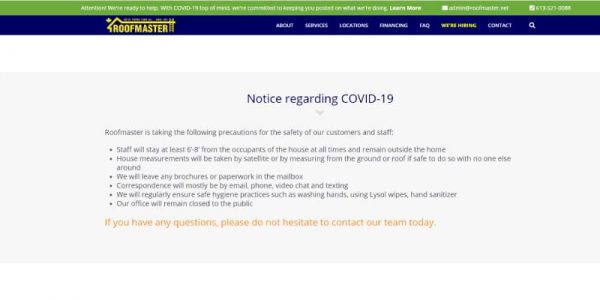
In today’s day and age, customers have a legitimate concern that information on the website may not reflect the current hours or operational policies. The more you can do communicate timely COVID protocols, the better.
For instance, have an alert at the top of the page with a link to your current policies. Include the last modified date so customers know if the data is still relevant. Include any information possible on things like contactless delivery, protocol for entering client homes etc. This will help set potential (and current) customers at ease.
Conclusion
Take control of the real estate of your website and tell your story, your way. Incorporate as many of these trust symbols as possible, and you will have an easier time closing business with happy customers.
